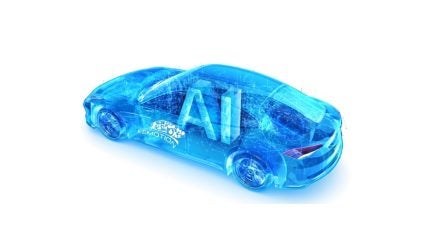
The ZF Group and Infineon Technologies AG have jointly developed and implemented AI algorithms for the development and control of vehicle software as part of the EEmotion project. The project was co-funded by the German Federal Ministry for Economic Affairs and Climate Action. The AI algorithms developed in the project, proven in a test vehicle, control and optimize all actuators during automated driving according to the specified driving trajectory.
ZF says software and AI algorithms can safely control the drive, brakes, front and rear wheel steering and damping systems that form typical driving dynamics. The more efficient the AI algorithms are, the better the available computing power can be used.
ZF says that compared to conventional approaches without AI, the two companies have now proven that their solution can for example, ‘carry out automated lane changes much more accurately’. The energy efficiency of driver assistance systems such as Adaptive Cruise Control has also been increased, it is claimed. ZF maintains that the improved driving performance combined with lower computing power demands paves the way for cost-efficient Level 2+ assistance systems.
“The EEmotion funding project shows that our artificial intelligence-based algorithms provide our customers with new advantages: AI makes it possible for products to be equipped with new functions and to be developed faster and more efficiently,” said Torsten Gollewski, Head of Research and Development at ZF.
“The EEmotion project successfully integrated artificial intelligence into the safety-critical functions of the vehicle control system; this was validated on the software side, making further progress towards highly automated driving possible,” said Ernst Stoeckl-Pukall, Head of the Digitization and Industry 4.0 department at the Federal Ministry for Economic Affairs and Climate Action. “The project has thus provided important impetus that has strengthened the innovative power and competitiveness of the German automotive industry.”








